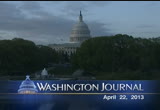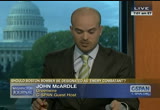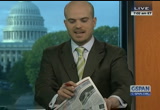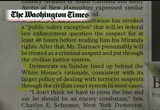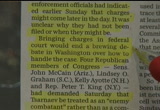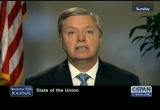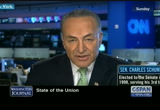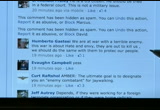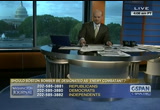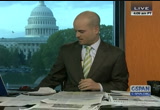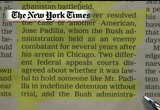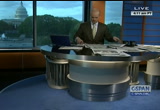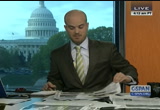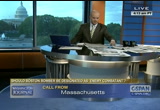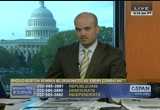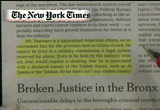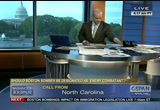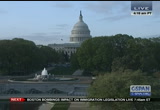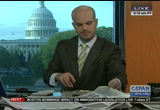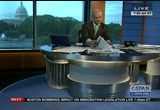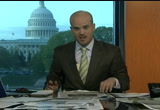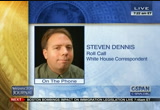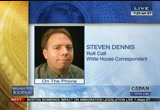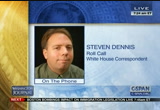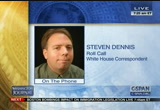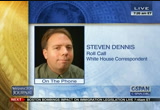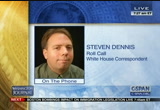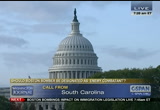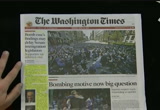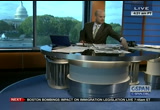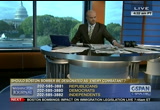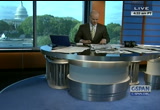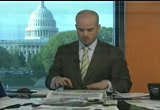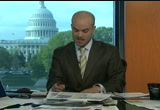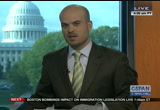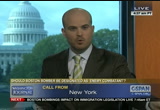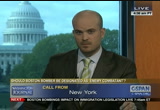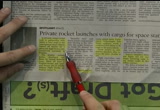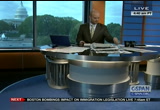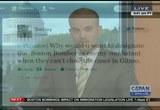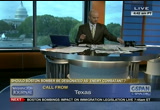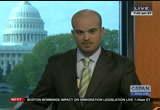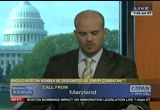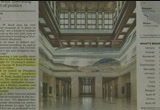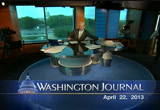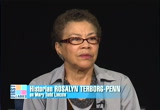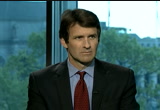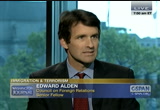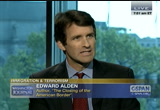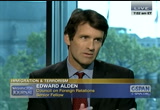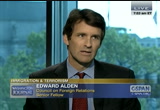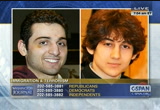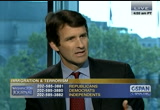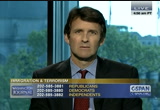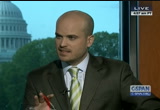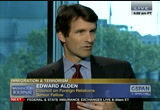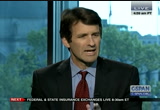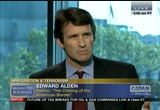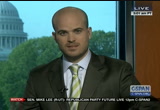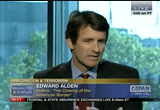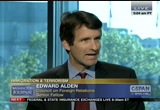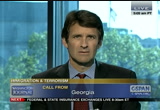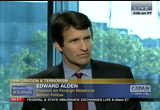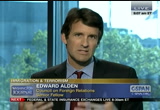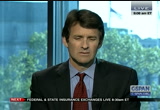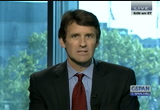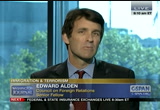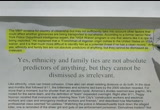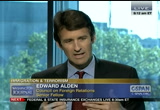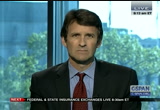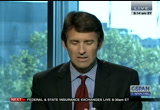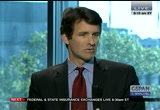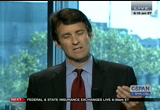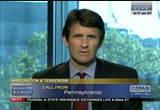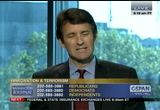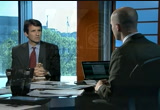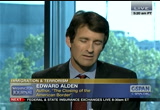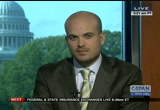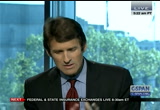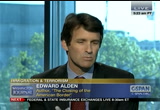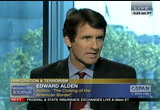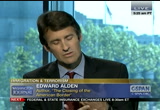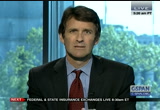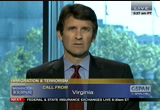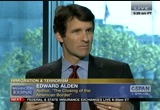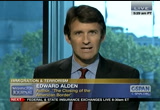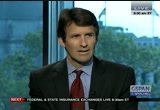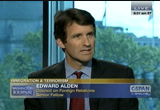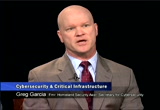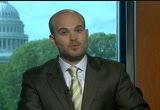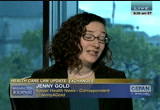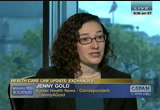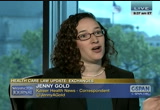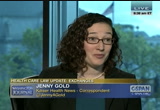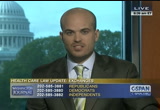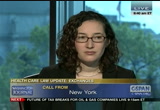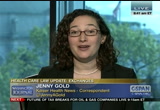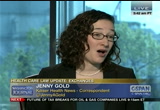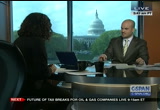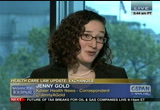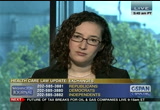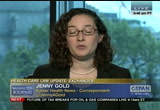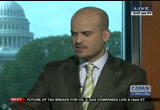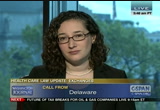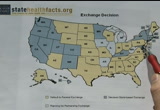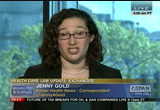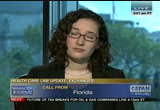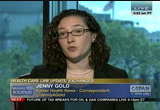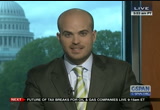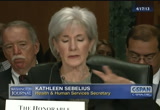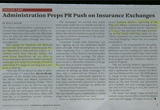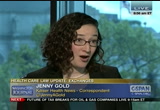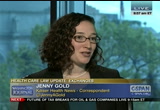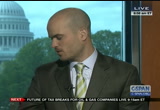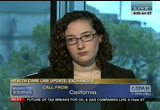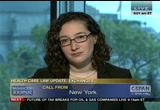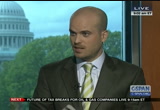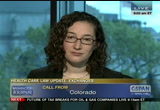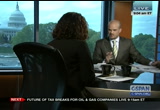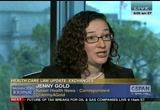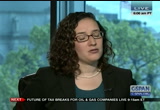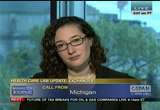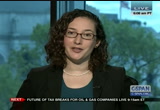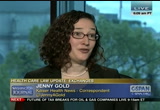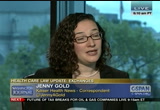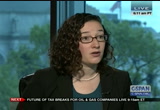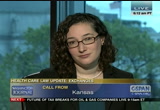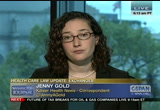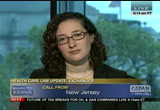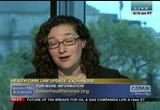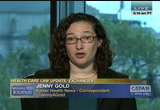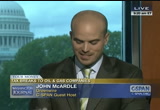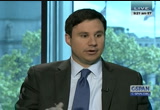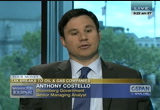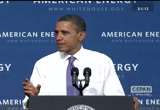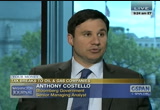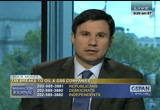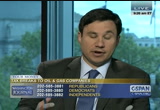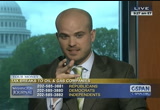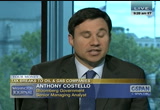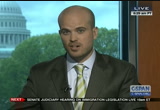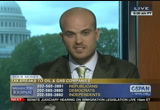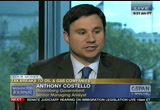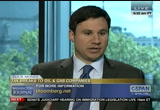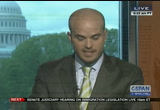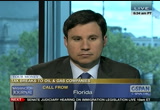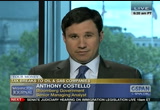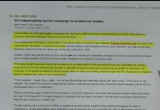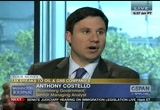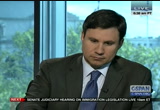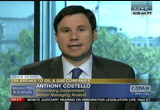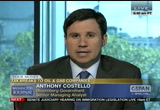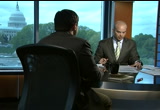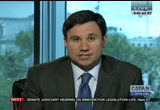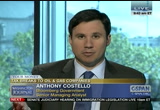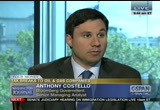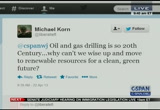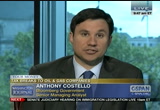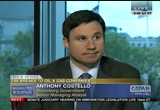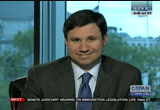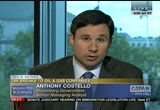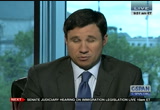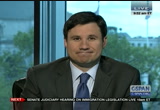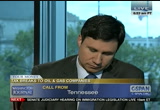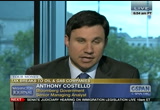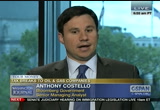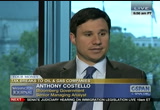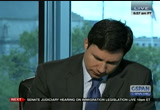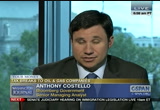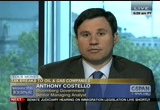tv Washington Journal CSPAN April 22, 2013 7:00am-10:01am EDT
7:00 am
than $40 billion in tax breaks for oil and gas companies in the 2014 budget request from the president. is next.ton journal" host: good morning. it's monday, april 22. congress will discuss immigration reform today. today marks one a week since the bombings in boston that killed three. with one of the alleged perpetrators in custody, the debate over how authorities should proceed will be at capitol hill. it being debated whether the u.s. citizen should be designated as an enemy combatants and questioned under
7:01 am
law of war or whether he should be turned over to the civilian criminal justice system immediately. should the ballston bomber be designated as an enemy combatants? give us a call. -- the boston bomber. a very good monday morning to you. we want to take you to the statement that was released over the weekend by three senators and one republican congressman. senator john mccain, senator instagram, senator kelly ayotte, and congressman king.
7:02 am
7:03 am
7:04 am
7:05 am
we will start with lindsey graham, the republican senator from south cola, talking about this issue on the sunday shows. we will play that now. [video clip] >> when the public safety exemption expires, this man should be designated as a potential enemy combatant and we should be allowed to question him for intelligence gathering purposes to find out about terrorist organizations and the future perhaps that may exist that he may have knowledge of. that evidence is used to protect us as a nation. anytime we question him about his guilt or innocence, he is entitled to his miranda rights and a lawyer. to gathere the right
7:06 am
intelligence from enemy combatants and a citizen can be an enemy combatant. host: the question we want to hear from you on its should the ballston bomber designated as an enemy combatant? screen.ers are on your chuck want to play inyou schumer, a democrat, responding to lindsey graham yesterday. [video clip] >> i think the good news is we don't need enemy combatants to get all the information we need out of him. the court that has ruled has allowed a lot of flexibility in the public safety exception before you mirandize someone. anytime there's a high
7:07 am
value interrogation group, composed of the fbi, cia, and anyone else can question him without a lawyer in a secure situation and find out whatever they need, that can be used against him in a trial, but there's plenty of evidence. they don't need his confession. so i don't think we have to cross the line and say he should be an enemy combatant, which could be challenged in court. getting comments on our facebook page this morning. we are taking your calls and comments. let's start on the independent line with russ from connecticut. good morning.
7:08 am
caller: good morning. it seems to me we have a model model of howat - okhoma creat timothy mcveigh in citizen now is a u.s. and he should be treated the same as we treated timothy mcveigh. that's my insert. host: thanks for calling. to new york on the republican line. good morning, jane. caller: good morning. he should be charged as an enemy combatant because of his islamic beliefs and because of his as an islamist it. i believe he was trained there. they came into this country to
7:09 am
do what they did. host: do you agree that he should eventually be tried in civilian court? the statement the senators made on the weekend if they can use enemy combatant status for intelligence gathering before turning him over to the civil justice system. do you think that he should eventually be tried in the civilian sysorliry tribunal? ller: civilian. they can handle it. yes. host: you are confident the civilian system can handle this case? at what point do you think the suspect should be turned over to a military tribunal? caller: i think they should go and close that down. host: some history on the subject of enemy combatant
7:11 am
we are taking your thoughts on the subject. eddie is next from south carolina on the democratic line. good morning. caller: good morning. like lindsey graham said a couple weeks ago, anything you say against obama is good policy. that is his opinion and that the way he's going. should be tried in federal court, because they have a couple options -- the death .enalty
7:12 am
if he does not want to cooperate, they could go ahead with the death penalty. then you'll see how fast he turns. as far as being a military combatant, no, that's out of the question. he is a u.s. citizen. hanks for the call from south carolina. i want to show you a few of the front pages. this is the boston globe this morning. several other stories about the attacks. boston paper with the bombing on the front page, this is "the guardian out of london. if a picture on the front page shows runners observing a moment of silence before the start of the london marathon yesterday,
7:13 am
less than a week after the attacks at the boston marathon. is up next from massachusetts on the republican line. caller: he is an enemy combatant. an 8-year-old boy with a bomb. he used his telephone to say he wanted to kill more americans, so he proved that. he was an enemy. host: the you think that he should end up in the federal courts after a time of interrogations? caller: no, he should be held
7:14 am
indefinitely so we can get more information. 10 blocks from his house was a person whoe the started the mosque was put in prison for supporting al qaeda and hama the one that replaced him was with the muslim brotherhood. he preaches the same vitriol about the world domination and taking over this country. disinvited him when the president came to have of the peopleur int week at the site
7:15 am
7:17 am
the wall streurnal. from north next carolina on our independent line this morning. good morning. caller: hi. it's totally wrong to treat this man as an enemy combatant. the notion that we can take an american citizen and put him , with habeastrial corpus, this is ridiculous. this is a criminal. he should be tried in criminal court. the fact that the republicans are trying to push obama in this direction is ridiculous. he should resist. what are they going to do, and torture him while he has
7:18 am
suspended his right to counsel? this is ridiculous. we have to stop this notion of eroding our rights for the sake of the public being safer. our constitution does mean something. alk about suspending the rights of an american citizen is ridiculous. drones killing americans on american soil. this erodes liberties. we cannot go down that road. host: thanks for the call. derickson is up next from columbia, missouri, republican. good morning. derrick is up next. caller: hello. .aybe he should be held
7:19 am
host: the you think there's a higher bar that need to be set to designate him as an enemy combatant? caller: the media has not shown needo see. there's no evidence at all. all they showed was one video of him walking on the street. all i have seen. there's nothing. absolutely nothing. host: you believe there's enough evidence to proceed with a civilian trial in civilian courts? caller: yes, i feel that's the only way to go. host: thanks for the call. genet from gaithersburg, maryland, a democrat. good morning. caller: it's janet. i believe he should be held as an enemy combatants. it was clearly an act of war with the bombs. the older b had islic rants on .
7:20 am
he went abroad six months probably to get training from someone. this was an act of war. his mother said the older brother had beenolvenv in religious political stuff for five years. she did not know beyond that. had bombs to kill us and came to this country to kill us. we need to get the information for future attacks, if they had any other people involved. one of the people in the newspaper, one of the victim's, i read on sunday that he could identify the person that put the bag back down, because he saw him right before he was injured. i read that in a newspaper on sunday. , we need thents information. we are at war and they are guilty. .bsolutely enemy combatants
7:21 am
host: here is the american civil liberties union releasing a statement on this subject on saturday. that's the american civil liberties union. we will be discussing this issue and taking your calls for the next half hour on the washington journal wrote. we want to give your preview of this week on congress. we are joined by steven dennis of roll call.
7:22 am
guest: it's great to be here. tell us about the highlights this week including immigration hearing at 10:00. guest: with another immigration hearing inhe sene judiciy.il mo, basically. expandede who oppose immigration rights will be keeping the focuwhether or not jobs are going to be lost. senator jeff sessions has been leading the fight against more immigration, legal or illegal, by basically saying that if you , that willmmigrants take jobs away from low-skilled american workers and drive their wages down. you also have this bipartisan compromise now. so you will have a lot more heated rhetoric and heated questioning back and forth. and that is likely to go on for
7:23 am
awhile. not just in hearings but on and off the senate floor as this thing gets closer and closer to actual votes. host: this hearing is at 10:00 today. you can watch it after the washingtonournal right at 10:00 here on c-span. how many hearings are scheduled on this immigration proposal that was just sold out. last week was, friday was the first hearing? guest: right. it's not clear how many more we will get. some republicans have been pushing for additional hearings in other committees as well. tothe other hand, they want get this bill marked up in the next several weeks. senator chuck schumer, one of the principal authors of this bill, wants it on the senate floor by the end of may or early june. so there will be time for debate in committee.
7:24 am
there will be markups that will be full.'this will not be something rushed through in a few weeks. will be time for the public the way in. when it gets to the senate floor, this will probably take several weeks on the senate floor simply because it is such a contentious issue. people will demand votes on a lot of different issues. host: steve dennis is with cq roll call, their white house correspondent. gun-control is another issue. we saw what happened last week. take us through gun control this week on capitol. guest: gun-control really is close to and dead. -- to dead. it was pulled off the senate floor last week because the key background checks vote failed. the democrats were not able to get 60 votes for an amendment that would have overturned a republican filibuster
7:25 am
threat. thee that happened, momentum for that bill collapsed. the supporters of it will be looking around for additional votes, to find if there is another angle they can pursue, another amendment or changed to the amendment to get more votes. if they have a pretty steep hurdles. they need five more votes. a lot of people who put together the amendment -- pat toomey, the republican senator from basically it says as far as he's concerned, it's probably time to move on, the senate has acted, and let's move on to other ridings. that's probably what will happen unless there's a huge groundswell from the public. we will have to hear from senators what they heard when they went back home over the weekend. in the meantime, they will be
7:26 am
focusing on an issue that i think really has not gotten a lot of attention that will affect most americans. that is whether or not you pay sales tax when you buy something online. this is a huge issueor your pockbooks if you buy something on amacom or ebay. chances are pretty good right now you don't pay sales tax on that purchase, but you do if you go to walmart.com or a brick- and-mortar store pier that because of the convoluted rules about who has to charge a sales tax. 75 senators voted for a version of this bill a few weeks ago when the senate passed its budget resolution. it was a non-binding vote. this will be a binding bill that will then go over to the house. it's very contentious. host: what would the vote to
7:27 am
allow retailers to do? guest: the way the opponents say it would level the playing field. you would have to -- retailers would have to charge a sales tax. if you sell a certain amount -- over $1 million in retail goods, whether it be on ebay or somewhere else, you have to charge a sales taxes for all of your customers across the country. if they have sales taxes in their jurisdiction. you would be able to find out who has the best price on line and say i will go buy from them because i don't have to pay my sales tax, no longer. some state banks 10% and can be a major issue if you're buying a 2011 computer. that might save you $200. now it will. you $200. $200. that would cost you
7:28 am
host: the wall street journal has an article on this, showing that california is in the lead, $4.2 billion from sales tax not collected. texas,he second-est, wh neyo behind that. steve dennis, anything else going on, on the house or senate side we should look out for? guest: the house has a pretty slow week. they have a bill on wednesday aimed at obamacare that probably is not going anywhere. it would attempt to increase funding for state high risk pools where really sick people can get health insurance and cut funding in other parts of the bill. that is not going to go anywhere. it will probably pass the house. on thursday they have a bill that would privatize the nation's helium reserves. that is an issue i'm not all up on, on -- all that
7:29 am
but it's interesting. the president has a pretty quiet week. he is going to texas on wednesday for a fundraiser. on thursday, orge i'm sure c-span viewers will get lotf. host: that is something that we will show live on a thursday morning at 11:00 a.m. on c- span3, c-span radio, and c- span.org, all covering that opening of the library. steve dennis, thanks so much for joining us this morning. guest: great to be here. host: we're taking your calls on the issue of the ballston bomber. should he be designated an enemy combatant? you can give us a call. phone lines are open this morning. we want to take you through four more-- through a few
7:30 am
7:31 am
45 minutes on this topic in our next segment, but taking your calls and tweets now. ndy hook let's go to james from north myrtle beach, south carolina, independent. good morning. caller: thanks for taking my call. it's actually los angeles. of course he should be tried in federal court. yusef was tried.
7:32 am
these people like john mccain and lindsay gramm have radicalized these people, haveuding the chechens who u can listen to my c-span call and you have the former cia bin laden head. he warned us that our foreign policy interventions in the muslim world, all of these neocon-motivated interventions. i notice that c-span has not been talking about it. i have great respect for c-span, but they have not talked about the senate just passed a resolution that basically gives israel carved blocks to attack iran. blanche.
7:33 am
host: there's concern about losing intelligence if the suspect is not interrogated as an enemy combatant. caller: that might be invalid, but if we don't address the foreign policy, we will have waves ofeople attacking our cities. look at what they were able to do in boston -- shut down a whole city. been on "russia today" talking about the neocon agenda for syria. from now to gabriel laurel, maryland, on our democrat line. caller: good morning. first-time caller. i think these guys should not be classified as an enemy combatant, because he is a u.s. citizen. ,f he was timothy mcveigh
7:34 am
he was not considered an enemy combatant, because he was a u.s. citizen. there's no place in the thisnd not a u.s.-born citizen, they should treat him like one. so we should not deviate from our constitutional values because of the urgency of trying to get this case closed. leads by example and we should keep to those rules. thank you. host: on twitter -- i also want to note some foreign policy news for you. the issue of israel. chuck hagel is in israel this
7:35 am
7:36 am
7:37 am
friend from los angeles so he does not have to use the independent line. i believe he is an enemy combatant and needs to be waterboarded and go to guantanamo. this was a huge wake-up call. affectk we will see this gun legislation and immigration legislation. the question we are curious about is why there has not been any talk of revoking his u.s. citizenship and whether that release the legal wheels to make it easier for him to be an enemy combatant. host: how would that process worked? theer: well, it seems that gray are in a lot of this
7:38 am
discussion has been american citizens, where americans have seemed to be a little bit more accepting of a re national andeing an enemy combatant when it's an american, that becomes more problematic. that he was part of a larger cell, i'm wondering whether the obama administration of it drone- killing the leadership of these various organizations has brought us down the path to this. whether or not capturing these leaders of al qaeda and interrogating them like in the previous administration might have led to intelligence, it might have blown this open before the tragedy. host: clips from new york. he brought up the gun control
7:39 am
7:40 am
i have a few minutes left to talk about the ballston bomber, the one that's in custody, should be designated as an enemy combatant? michael from arizona on our independent line. good morning. caller: it's actually arkansas. hi. i do believe there is a word for someone who is a u.s. citizen who commits an act of war isinst the u.s. -- it
7:41 am
treason, punishable by death. notur u.s. government was being run by a bch o intellectualorons, but i would have already been convicted and put in front of a firing squad and shot. host: you are talking about the one that is in custody now as opposed to the one we know the fbi interviewed? caller: yes. he forced their hand and made him shoot him. ofherwise we would have two them everybody is trying to protect. on twitter --
7:42 am
now to william from texas on our democratic line. good morning. caller: good morning. thank you for c-span. i am curious. -- i wishat mentioned you would have asked him where he got the information from this 19-year-old man the 26-year-old big part of a larger cell that was not talked with in the u.s. from what i have heard about them, the older brother, the one that was killed, he went over to and he may have been radicalized there or here locally over the internet. host: that investigation is
7:43 am
ongoing. the papers today note some speculation, but that investigation is ongoing into what actually happened when he went overseas for six months. been a but there has statement from some of the radicals that are in this .ountry were at war with russia. i would just like to know what larger cell this guy was saying he was part of. they have not confirmed any thing like that. host: thanks for calling. ray from maryland on our
7:44 am
republican line. good morning. listen, this guy should be charged. he should be put on trial and he ought to be before the supreme court. if he wins, if he's found not guilty, it should be guilty one way or the other. secur partly the problem because they did not in their running thing homeland security let them down. one way or another, this man ought to be in the white house with obama and see what happens. host: ray from maryland. one other story we want to point out for you. we talked about the bush library
7:45 am
7:46 am
next on the independent line. good morning. if he is don't care convicted or is an enemy , as long as not they prove his guilt and take care of business on it. host: thanks for the call. up next, we will dcuss immigration policy in the wake of the boston bombing and how it has changed since the september 11, 2001 terrorist attacks. later, on the federal health care law, we will talk about how people will shop for insurance fraud in the federal and state- run exchanges. the op for insurance on federal and state-run exchanges.
7:47 am
>> she was very bright, very political, which is why she and lincoln got together in the first place. she spoke several languages fluently. was extremely well-educated. so she had all these things going for her. but she had suffered a series of tremendous emotional blows. infour of persons died, one the white house and one shortly after her residence assassination, sitting next to her in the theater. a kind of grief this woman was going through, amazing letdowns. people thought she was crazy. we found out she was not crazy. mary todd lincoln was a very
7:48 am
significant person can and i hope someday we get a better view of the range of things that influenced her life and not just a tragedy. >> monica quan mary todd lincoln tonight at 9:00 eastern on c-span and c-span3 and on c- span radio and c-span.org. >> the museum is meant to help a visitor relive the first eight years of the 21st century. the museum explains the decision making process that i went through as president. and we hope it inspires people to serve, to serve their community or their country in some way. >> we really did not want to be a school. we want to be a do [indiscernible]. i don't know if there is a lesson there. i do know that laura and i
7:49 am
decided to go in a different direction with a component of programs from which programs will emerge. >> watched the dedication ceremony of the george w. bush presidential library and museum from southern methodist university in dallas live thursday morning at 11:00 eastern on c-span3, c-span radio, and c-span.org. span,20 a.m. eastern on c- a conversation with the former first couple. >> "washington journal" continues. host: the boston marathon bombing is also having an impact on the immigration debate in the u.s. and some are drawing parallels to the way the 9/11 attacks changed the immigration debate in 2001 and 2002. a senior fellow at the council on foreign relations. about thet to talk front page of the washington times.
7:50 am
your reaction to how the bombing is clinging to the immigration debate? guest: we have heard quite a lot about it in the last couple days as more details have come out about the two men behind this. i don'txpt it to have a significant impact. when you start to delve into what happened in the case -- and details are still coming out -- it does not appear to be directly related to a lot of issues on the table like immigration reform. folks on the republican side, a lot of them want to see legislation move more slowly regardless. so this is an opportunity for those people to say let's slow down and take another look. i don't expect it will have a significant impact on it. host: one of the folks calling for a slowdown is senator chuck grassley of iowa, a republican. he talked about this issue on friday at an immigration hearing. [video clip]
7:51 am
>> how can we beef up security checks on people who wished to enter the united states? how can we insure people who wished to do us harm are not eligible for benefits under the immigration law, including the new bill before us? we have a longd ahead of u to pass legislation reform in immigration. in 1986 we thought we were doing this, but we screwed up and we cannot afford to screw up again. host: that was senator chuck grassley. who else has jumped on this issue and since the boston bombing? guest: you obscene commentators in the newspapers with others, chrysler has taken the lead on this in suggesting a slowdown. i would not say and huge , butdswell by any stretch
7:52 am
conservative commentary you've seen from chuck grassley. texas.ongressman from but we will see how it plays out. i don't see a huge movemt the immigration debate after the 2001 terror attacks, about the parallel that uc. guest: we are in a completely different world in terms of immigration controls. the linking of this immigration would be the argument that somehow u.s. immigration authorities, whether it be overseas or over here, should have been able to see signals that these gunmen were of concern and keep them out of the country. they came with their families when they were quite young. the younger brother was a child at the time and the older one was 14. time's not clear at the
7:53 am
there's anything could have been done on immigration front. let's say they had been older, but there had been reasons to be concerned about them, the difference is extraordinary. before 9/11 there were very few checks at all. the hijackers came in with only the lightest of scrutiny by the state department. no scrutiny at all when they arrived in the u.s. except for one who was identified in miami by a smart imf officer at the time. today they would go through a much more detailed background check, checks against terrorist watch list. it would be fingerprinted when they got to the u.s. and compared against a corporate databases. the level of security in terms of trying to identify people coming from abroad who might be terrorists or criminals is light-years beyond where we were before 9/11. not perfect, but much better than what existed 13 years ago. host: edward has written a book about this issue.
7:54 am
we will be talking about this issue for the next 45 minutes or so. you can give us a call. the lines are open. the numbers are on the screen. outside the u.s., about these two brothers' specific cases. what jumps out to you about their immigration cases, how they came to the u.s.? whether any holes we should have looked at? guest: the immigration history is not a particularly extraordinary one. origin, they got rid duty status in the u.s. there are not many individuals from that region given representative duty status, so there will be questions asked about the initial decision. but this goes back to 2002. so the issue back then would be the parents. host: the about how that process
7:55 am
works? guest: the united states admits tens of thousands of people. up to 50,000 people a year because they faced prospect of persecution in their home country. if they are refugees, tyries the u.s. along with many other countries in the world admits a certain number of people every year becauhe have fear usually of political persecution or religious persecution in their home country, but there can be other reasons. asylum claimants are those who come to the u.s. and arrived here at the port of entry and present themselves and say i cannot go home, because if i go back i will be a portrait or killed or jailed wrongly. they have to make that case while they are in the u.s. if they are believed by dhs officials, there is a judicial review process, and and they are admitted to the u.s. as asylum applicants. there are tens of thousands of
7:56 am
those coming every year. it's a fairly small portion of our overall immigration, which is 1 million per year. but it is a significant program in parts of the world particularly where there is unrest. in the southern part of russia there's a lot of violence. host: we are taking your calls on this subject. edwin from ohio on the democratic line. good morning. -- evelyn. caller: good morning. i would like to tell my opinion. i don't hear any kind of talk talk these two guys. they were brought over here. i heard on tv and they had been here seven years or longer. olderd this morning the one had been investigated and was led to go through customs and then forgot about. . would like to say what i feel
7:57 am
they made a big fuss about our president having the name hussein. but they never did check these and the old one said he haa name could pronounce or spell. why did they not check their names out when they went to college and keep surveiling them every minute of the day? host: the about how the older , thisr tamerlan tsarnaev issue with the fbi impacted his immigration status. about we will learn more this. it appears that the russian government was concerned about him. he had gone back to russia for
7:58 am
six months in 2011 for about six months. the russian government was clearly somewhat concerned about his activities and alerted the fbi in the united states to keep an eye on him when he returned home. what has come out is the fbi did interview him and did a cursory investigation and decided there was no cause for concern. i suspect there will be a big focus on that as the investigation proceeds, why did the fbi not follow up on that. you can come up with plausible explanations. the relationship between russian law enforcement and u.s. law enforcement has not been very good over the years. so maybe it was the russian warnings were discounted. it's not clear this necessarily would have been an immigration issue. he had a green card and was entitled to come back and forth freely from the united states. outnformation had come through the fbi investigation
7:59 am
that he had criminal and terrorist ties, his green card could of been revoked. clearly, they never found anything that caused them that level of concern at the time. host: on twitter -- i don't think chuck grassley has made any specific requests other than to take time to investigate this. this of the initial reaction after 9/11. the u.s. created a list of 26 countries, all of them with significant muslim populations and said if you are coming to the u.s. from these countries, we will make it difficult for you. we will investigate your application in great detail, we will deny a lot more those applications. after you come here, we will track you very closely. you will be pulled aside for
8:00 am
long interviews every time you come through an airport there that sort of thing did happen immediately after 9/11. what there was no need for a special system just for folks from these countries. know is thatg we they have a majority muslim population. by a review ofed background checks. i do not expect we will go back there. do itis not a lot we can that is not already done already. we have pretty good law enforcement cooperation with these countries. additionallear what step you want to take with
8:01 am
respect to screening. a seniorard alden is fellow with the council on foreign relations. "financiald at the h times." patty from connecticut, good caller: i am in disagreement with your guest. span and ever watched c- listens to the calls thatandthat comthat come in. up and everybody is against it. host: let's let edward alden give his take on the immigration issue. we have talked about the
8:02 am
boston issue. that is a screening issue. we have a big bill by the so- called gang of eight. the move towards legislation voted on in the senate. this is a big bill and raises a big set of issues. ublic opinion polls. ofre is a small minority americans calling for more immigration. americans are happy with the numbers coming in. this bill juggles the quotas. it moves the numbers around to encourage immigration more from skilled people.
8:03 am
8:04 am
host: your take on that editorial. guest: i think that is largely true. thee 9/11, making immigration system more secure against people trying to harm the united states -- that has been the focus. int might help somewhat identifying people of concern. marginal would make improvements in that. it calls for the completion of the exit part of the entry-exit portion.
8:05 am
marginse things at the that would improve security in this bill. i think few americans would understand how it is today from what it was pre-9/11. a lot of the hard work has been done. host: jeff from georgia. caller: good morning. i am a college student. i have been talking to my friends back in tennessee. that of people concerned bo greup i america like the younger suspect did. the older brother lived in america and went to school. americanizedmewhat and have grown up here and have been around other american
8:06 am
leave the country for six months at a time. immigrantsk maybe from coury that leave this country over a certain think of time, do you there's a way to track them better if they leave over a certain amount of time? guest: it is an interesting question. there was a good piece and "the national review" expressing concern about whether we're assimilating immigrants as effectively as we did for many years. the europeans have struggled with this.
8:07 am
the masterminds have been born in the u.k. they were born in britain. liven all their lives andat they decided to perpetrate a horrible attack. troubling. deeply it speaks to whether we're doing as good as the job as we should be as a country in bringing whoever is coming here and making them a full part of american society. if somebody left for six months, you want to be thinking about why they were gone for so long. a lot of legitimate questions you could ask. i'm not sure how you could
8:08 am
establish a specific tracking system. i think the caller raises some legitimate concerns. host: anthony is next. caller: good morning. -- we beenut 9/11 stuck on the number for almost a decade now. the senator schumer and lindsey graham yesterday. he was talking about the new law. how are they going to force this? they are fooling themselves. that's not going to happen. we have problems right now with
8:09 am
congress cutting funds from our federal government. where is the money coming from to enforce this? guest: two points. $11 million is a pretty good number. that is in the ballpark. 1986.k to passed thatbig bill offered status. .hey don't all come forward it is a legitimate concern. there has been an lot of effort in this bill to encourage people to come forward.
8:10 am
you come forward within the first six months, as long as you don't have a criminal background, you'll beiven a temporary provisional status. you can go out and get a job and get paid above the table. you can travel back and forth to your home country. these are big carrots. fines be paid through levied on the individuals themselves. there will have to pay $2,000 or more. will everybody come forward? probably not. but i expect the percentage to 1986.gher than in highe
8:11 am
"thee headlinerom daily beast." ofallows citizens participating countries to travel in the united states for business or pleasure. it does not take into account other factors that could affect whether grievances are being transported to our shores. it seems like it is right to be exploited. infringement comes to the united states on visa waiver -- a frenchman comes to the united states on a visa waiver.
8:12 am
i want to you take on that. guest: i think every worofthat . the visa waiver program provides greater security. there are two ways to come to the united states. visa.n apply for a or you're from a visa waiver france, germany, japan. you have to submit all of your information to the u.s. government in advance of the trip. law enforcement cooperation with all of these countries. their police forces share of very little with us.
8:13 am
if the french government has some concern, that will be sharedh u.s. intelligence and u.s. immigration. is insa waiver program many ways more secure. it reflects a lack of understanding with what has changed. there were a lot of holes in the visa waiver program. they have been plugged and very hard work on two administrations. it does not reflect the current reality. host: bill is up next. caller: good morning. conferenced a press to help find the purported bombers. they admitted they had been
8:14 am
tracking them for years. surely they have t arees why they would do such a thing. guest: this gets into law enforcement areas. they needed the videos from the stores and the individuals who were there at the marathon. why they put the fun goes out outhy they put the photos -. there probably did have their home addresses but i do not think the young man headed straight home after the bombing. diskettes into the details of the investigation.
8:15 am
isomes in on talking about the issue of the older brother, tamerlan. should we withdraw the visa? guest: the with the current system operates is your visa can be revoked for lots of reasons. host: clement that he is seeking asylum and goes back home for a longer period of time. guest: if there was any reason he was a danger, he could have .een barred from reentry card are lots of green holders better deported, because
8:16 am
dnk to criminal or terrorist organizations. he could have been kept out of the country. we do not know what information the fbi had. twitter wantlks on to know more about the accounts on foreign relations. takes noe council specific position. i was the project director for a task force in 2009. what we do is to assemble task force of prominent individuals. the republican chair was jeb bush. the democratic chair was matthew mclarty.
8:17 am
we had a group of excellent individuals. end. towns a very balanced group. we came up with a series of recommendations. the council does not take positions on these issues. pennsylvania.m caller: good morning. -- the think those boys exception of the uncle should be allowed to stay in this country. why don't they just stay in russia? there should be more screening about who is coming in here. they do not know who these
8:18 am
people are. the usare bad enough in without other people coming near committing crimes. about we know a lot people who are coming here. there are going to be mistakes. hen hey had come over were 18 or 19 or 20 and had committed an attack, i would say that is a failure of immigration screening. thatbly they had some ties could have been uncovered. they came over here as kids. thisver caused them to do happened while they were in the united states. and not know how immigration system protects us from that.
8:19 am
let's just not have any immigration. this country was built on immigrants. we have been a country of immigrants since our founding. the best create possible screening systems while to emigration. the symptoms are not going to -- the system is not going to be perfect. to a nationalover security focus. .uest: look in the 1990's there were lots of jobs. there were plenty of jobs for everybody.
8:20 am
we wanted people to come here on the these aside. side.the visa this was seen as being good for the u.s. economy. dramatically.at we discovered our immigration system had failed. a number of these individuals should have been allowed into the united states. there was a lot soul-searching about how to correct these problems. the number of visitors to the united states went down dramatically. we have put in place systems in terms oftty good screening.
8:21 am
we're trying to have the best of both worlds. we want to encourage people to come to our country. we want to be able to keep up those who are likely to do was this kind of harm. it is a balancing act. the perfect from becoming the enemy of the good? guest: in an open country like the united states, we always have been, you cannot have perfect security. it doesn't mean you cannot do better. host: denver from new mexico. from mexico. caller: i would like to make a comment about the borders.
8:22 am
terroristic camps popping up everywhere. again and ages form in these other places that is hard to reach. they are training on the mexico sied states. they are, across our borders -- they are coming across our borders. they are getting around us because they are getting smarter. it is not that we're getting less vigilance. they just keep on coming. host: is that something you ever heard about? guest: there are big, powerful cartels that make a lot of
8:23 am
money smuggling drugs after the united states. they use a lot of violence to particularlyy want, on the mexico side of the border. fein, the criminal organizations? caller: not necessarily. these are al qaeda training camps. guest: there is no evidence that al qaeda has training camps on the mexico side of the border. economy depends on exporting to the united states. if there was evidence the mexican government was tolerating al qaeda trading, it
8:24 am
would be shut down so fast. that is misinformation. there is a problem with criminal groups.n afrth nion is misinformation. host: let's talk about how they would increase the protections on the border. guest: border security is a big part of this legistion. evidencewants to see of sufficient progress. the bill has set some interesting benchmarks. arizona, san diego, rio grande sector in texas.
8:25 am
the border patrol is either arresting returning back to mexico 90% of those who tried to enter. we're not that far from it. .eople don't understand arrests on bemade a year. that number is down to a trickle now. the people trying to enter are getting arrested or turning back and going back to mexico. still a lot that needs to be done. wey different from where were a decade ago. we're trying to move from a
8:26 am
reasonable control border to one that is pretty secure. not 100%. we are not going to stop everybody. look at the german border. guards with sht--k rders had a bad day 95% interdiction rate. about a thousand people a year made it across the border. we have been doing better. from virginia. caller: there are three ideas that we can use to achieve a secure borders and fight terrorism without infringing on people's liberties.
8:27 am
the first flight would be to change our foreign policy. we're taking a big stick and poking at a hornet's nest. the war on drugs has pretty much failed. anybody trying to take drugs. that will secure the borders a little better. if we change social security around a low ittle bit. one thing about the terror suspect right now. how hard is it to reach somebody their miranda rights? they were talking about not reading his miranda rights. terror suspecthe
8:28 am
enemyd be detained as an commabantant. guest: issue of the war on drugs -- the one not be addressed in this bill. .ocial security will be people use phony social security numbers. your card is pretty easy to forge. an effort to crack down on this. an expansion on the e-verify program. they will check you against existing social security databases to make sure you are work in the united
8:29 am
states. your photo information will have to be shared with the database so they know it is you. some interesting propo w you protect your social security number. if you've just applied for a ob, you can in effect lock it so that no other employer can check it until you authorize it again. to try an important way to make it difficult for people not legally authorized to work in the united states to do that. the hope this is shuts off the magnets. people come here because they want to find jobs. the idea is to make it difficult to find work unless they have
8:30 am
legal status. host: bill is from maryland. caller:i. i understand the discussion is about border patrol and immigration. i wonder why there was not as of thecus about all paramilitary groups who thought it was necessary to buy guns and complained about the government in which they live coming to get them. why weren't they considered to be terrorists? what protection does this country have against groups like that? guest: that is not something we've looked into. at times this has been a big issue.
8:31 am
there were real concerns about homegrown terrorism after the oklahoma city bombing. it is legitimate to use it against indiscriminate attacks for some kind of political or ideological purpose. you could have american citizens perpetrating a tax another americans. ofterms of the big victims foreign terrorist attacks by al qaeda or other islamic radical groups, it has mostly been other muslims. we have not been the biggest victims of those attacks. is a senior alden fellow at the council on foreign relations. thank you so much for joining us today.
8:32 am
we'll be doingur ongoing seriesthe federal healthcare law and we will talk about how people will shop for insurance. later tax breaks for oil. but first a news update from c- span radio. eastern time today, boston will fall silent to honor the victims of last week's bombings. the surviving suspect remains hospitalized with a tube down his throat. a pair of bombs wounded more than 170. ricin-ccused of mailing is expected back
8:33 am
in court today. today is earth day. replantingill telephone redwoods in the united states and several other countries. duplicatesre genetic of three giant redwoods. storie[video clip] >> we have seen a way of flooding a network with information requests that cause a stoppage of service. ,yber criminals are after money as waslie sutton. >> there have been attacks
8:34 am
against the system. you do not want people to know how the air traffic system works. every day froms various sources. so far the major attacks have been on customer information systems or things of that nature. the have not kept me up at night. >> protecting critical infrastructure from cyber span2.s, tonight on c- >> "washington journal" continues. host: we continue our coverage act.e american health care
8:35 am
for insurance plans.able to sho we're joined by jenny gold from kaiser health news. thet: one problem with health insurance market is that people do not get coverage through their employers is a wild west. greatly.lans vary an attempt tois get rid of that wild feeling and make things as controlled as possible. each plan would have to have a set of health benefits. everybody will be charged about the same grrate.
8:36 am
you will not be able to be dropped from your insurance plan if youedith east cancer. host: who is going to be using these exchanges? guest: the people buying on the individual markets. small businesses will be able to send their employees to buy plans. thefocus right now is on individual markets. you'll be able to know what you're buying. people will be offered subsidies. 400% of the up to federal poverty level, you'll get the subsidy to make sure you
8:37 am
can afford the plans. host: what is the time line for implementation? guest: on october 1. that is when open enrollment begins. your coverage when not begin until january 1. host: we will show the timeline there. host: talk about a federal exchange. states.here are 33 certaine will take on responsibilities like getting consumers enrolled. this is a really big difference between a state run and a fairly
8:38 am
run exchange. congress is expected most states would want to run their own exchanges. at least they would want to be in control. that is not at all what happened. 17 states chose to have their own. the law was written with the idea that the states would run their own. states could have unlimited funding to set up these exchanges. thatve left out the word the government could have unlimited funding. almost all the states are expecting the federal government to run it for them. you have a real dichotomy in
8:39 am
then thefor states and states that having -- then the states that are having the feds run them. host: we are taking your calls as we discussed this with jenny gold. the numbers are on the screen. republicans, 202-737-0002. democrats, 202-737-0001. independents, 202-628-0205. there is a line for those outside the united states, 202- 628-0184. james from new york, good morning. caller: good morning. thank you for c-span. ?ost: thoughts on the exchanges
8:40 am
caller: i believe it cks in aust 1 october the lag for 1 when this disaster goes into effect. will impinge on andle's religious beliefs these other disasters ideas when hillary was pushing this disaster. beple of all faiths should careful about this. what happens between august and october? guest: exchanges open for business on october 1.
8:41 am
and the all the states government scrambling to make sure the exchanges will be open for business in october. nobody is sure whether this will happen. is in chargeelius of the healthcare law and going in front of congress and making sure they will be ready. are they really going to be signing people up? places like california will be ready. there are so many aspects. you have to have the insurers signed up and ready to go. host: just the media campaign around this. this is the recent poll from
8:42 am
kaiser health tracking. how much have you heard about your states' decision to create an exchange or marketplace where people can shop for insurance? that poll had heard nothing at all. guest: the consumer and rahman is one of the greatest question marks right now. you have the technical aspects of rolling ahead. are these people going to sign up? uninsured dothe not know what this law is going to do for them. we are starting to see the
8:43 am
federal government designate navigators' tout got into committees and to try to get people more aware of what c expect. there is a lot of opportunity now. freemay be eligible for health insurance. or they may qualify for a subsidy on the exchange. there is limited funding available for that. this isu mentioned that different from the way president johnson tried to publicize the medicare program when it was first created. guest: we do not know what this push is going to look like.
8:44 am
you saw the red sox in vaults in massachusetts in their version -- use of the red sox involved in massachusetts in their version. president johnson sent people out into the alaskan tundra to make sure everybody was signed up. forestsending out rangers to find hermits. we're not hearing about that just yet. forexchanges don't open until october 1, you want to make sure you're not telling people you can sign up now, because you cannot. get peopletant to more knowledgeable about what to expect. there is a fine line to tread.
8:45 am
host: we go to mary now. caller: i would like to agree with your previous caller using the word "disaster." forttended a seminar given people in our industry. it was chaired by three local attorneys versed in this area. we went through pages and pages -- the regulations that have been written are scant. -7-% of the time of the time the attorney said, we do not not know.
8:46 am
figure out how to comply with this disastrous las. experienceary's fairly common? guest: there is a lot of paper pushing. is always a plan pain. even for me. it is hard to make that decision. the idea is to make that process simpler. i've been hearing the ramp up to that, it is a time of great confusion. acan tell you there has been delay for the small business exchanges. host: the other half of these
8:47 am
exchanges. guest: exactly. the small business exchange is the one that is getting delayed bya year. there will not be the ability to choose among many that lawmakers had planned to have ready by october of 2014. choices in 2015 and this coming year there will be one option. host: we have a question on .witter from fishinsam can you talk about the choices that this is creating for folks who have plans? hest: i assume that means has private, individual insurance.
8:48 am
if you make up to 400% of the poverty level, it makes sense to go into the exchange. a new policyo buy in the exchange, most likely. .ost: carl fromdelaware insuranceam an agent in delaware. this will be the biggest boondoggle in the history of our country. you're taking in people that are very ill and fit. the claims will be astronomical. claims. has to pay the the people will pay it through their premiums.
8:49 am
take a family of four that makes $92,000. how about my wife and i? i would venture to guess our health insurance premiums will be over $20,000. now, who can afford that? nobody. disaster.ing to be a either use socialized medicine or allow a free market to compete. host: delaware is one of those for a that is planning partnership exchange. we have a map. these are the federal exchange programs that will be set up.
8:50 am
is theht blue partnership exchange. guest: i'm not sure where you got the $20,000. we do not know how much the plans will cost. for something like a pre- existing condition or something like your age, you will see those policies go a little lower as more young, healthy people come into the exchange. a lot of people are talking about -- people might be paying just $100 a month might be paying somewhat more. we do not know yet. somebody older with a pre-
8:51 am
existing condition might see their rate to down. fran.good morning, caller: somebody asked part my question already. right now i'm currently uninsured. i'm not comfortable being uninsured. uninsured.yed and i'm a diabetic. diabetic supplies out of pocket. somethingrned about catastrophic coming up. any of this new health care laws in effect now. i do have a pre-existing
8:52 am
condition. are the insurance company still allowed to prevent me from joining their ranks? you aren't exactly the person at this health what is set up to help -- you are exactly the person this health help. set up to right now insurers are charging for more for older americans. the health law should bring down your premiums significantly. the oldest people are allowed to be charged three times than what the younger people are charged. havingnot be denied for
8:53 am
diabetes. but not know your income is you're likely to qualify for a subsidy. about $15,000 a foreign individual,- for an you may qualify for free care under medicaid. to qualify a family for medicaid. host: the chairman of the senate finance committee pressing secretary kathleen sebelius last wednesday about this issue of preparedness. [video clip] >> i just see a huge train
8:54 am
wreck. i did not see any results yet. do? the world do why >> we take outreach in education very seriously. we were incredibly disappointed that our requests for additional outreach resources were not made available in the cr of 2013. engaged in efforts with the small business administration, who is doing regular meetings around the country with our regional personnel. we've just released a request for a proposal for on the ground
8:55 am
from thes, individuals patient and hospital community who will be available to answer questions and to hold seminars. we do regular seminars. we understand people have a lot of questions. deploying as many resources as we can to answer those questions. of kaisery gold health news. here's a story on insurance exchanges. talk about what the administration is doing to get the word out. guest: las week was not a go sebelius.ecretary
8:56 am
he was drilling down and he is concerned. he needs to go back to his constituents. he needs this thing to work. senatorheat from harkin. i think people are starting to say, wait a second, is is starting to go the way of enrollment. hhs has a difficult road ahead of them. congress is not been forthcoming with the money. statespected that more will be setting up their own exchanges and that there would be plenty of funding.
8:57 am
.hat is not the case they have asked for almost a billion dollars in funding. they did not get it. said there were robbing peter to pay paul. theyre pulling mon bbli together and money to accomplish what is an expensive tasks. $8.1 million, and that might sound like a lot of money. they will figure out what celebrities to use. what to do want social media. take maryland. dnohavehat many uninsured.
8:58 am
8:59 am
dependencts. the relative cost is much higher than charges for people -- literally thousands of people in the group. jettison this more expensive group and to get something into more cost- effective. to we going to be able jettison this program and get into something that will be much and get a muched better rate honor health insurance/ e?
9:00 am
will bring all the policy cost to an average level. should see your premiums even now with some of your other small business colleagues. those have been swept under the rug. we have gone through a lot of these lawsuits. even republicans are saying that unless they are able to get together the vote to repeal this thing, this is below of the land and is going forward. host: one question -- guest: one reason you might not want to go out is you will have to pay a fine. it is only $95 in the first year 2.5%oes up in a few years,
9:01 am
of your income or $700. that might be more convincing argument to sign up for coverage. people worry that penalties are too low. usedanyone, as my mother to tell me, don't go a day without health insurance. you never know when you of a concussion or be in a car accident. is it really a risk y want to host: let's go to huntington, new york, republican . caller: good morning, i would like to know about -- this policy in new york. let's say i want to move out of can this policy follow me? to another state? host: would you have to change policies with each state? is that when you're asking?
9:02 am
caller: guest: yes my understanding is that you would want to change policies. it is about states' rights where they have a right to it -- to control their own exchange and allow certain insurers. if it is state-based, they can cover to have insurers benefits that are beyond the essential health benefit package that the federal help law requires. in california, you may have more robust care for autistic kids or something along those lines. because each policy is different in different states, is likely you would have to get a new policy in a different state. host: what about the states that are defaulting to the federal exchange? do you necessarily have to change with each state to move into? those of the states didn't our map that are in yellow. aret: i believe there separate insurance policies in
9:03 am
each state. host: so you still have to get a different policy? guest: that's my understanding. colorado, and there are independent line, good morning. caller: i just wanted to make a comment about the cost and time to set up these exchanges. being from colorado, this state is aost complete. right after obama care became law, our governor at that time the was a democrat said it was decades light. it depends on your ideology. it depends whether or not this thing will be implemented well or if you will drag your feet and possibly jeopardize the program. guest: like i said before, each state is different and colorado, you saw an example of a state that is pretty far ahead. they know which insurers will be in there.
9:04 am
they have been proactive in setting up the exchange. you have other states that are really dragging their feet. nots a question whether or that state will extend medicare. some states say they will not do that. in that case, they will have people from 100% at the povtyl's and people below that, we don't know what will happen. qualify fort medicare in that state, is not clear what options that will have. host: - \ who are the states, some of the states that are doing the best job right now? you mentioned colorado. guest: colorado, california connecticut is already going out of looking to find people. let me shift back to the -- what
9:05 am
states are doing to sign people up. connecticut is going door-to- door and seeing who will qualify. they are collecting names and addresses and phone numbers and making sure that on october 1, they can reach out to those people and get them signed up. host: connecticut is during the state-based exchange? host: states that are knowno a little help at this point? guest: you've got states like florida and texas that have a huge percentage of the uninsured will. the federal government be able to cobble together the funds to do the kind of consumer outrage that you need. think about some random person in their home who may not know about the health law or may not know what it offers them. someone needs to reach out to them and let them know their options. likely, they will let sign up. we have an ambitious enrollment schedule. in 2014, the federal government
9:06 am
is expecting 9 million people to enroll in the exchanges. another 7 million to enroll in the medicaid expansion. by 2017, you've got 35 million people enrolled in medicaid and the exchanges. host: to those numbers take into account the way to blicize this? guest: absoly. ho: are the nus t down? gues whave no idea of what the numbers will look like but we can safely say that there is not a strong push to educate consumers and get them enrolled. we could see those numbers go down. imagine someone coming to your door with the application and helping you enroll -- it is hard to enroll for health insurance. the applications that cms and hhs have put out so far may take 45 minutes to fill out. it is a big deal. you have to fill out all your
9:07 am
information and people are likely going to need help to do that. once they get through that initial stage of filling up the application that tells them they qualify for medicaid and the exchange and what subsidies you can get, they will need help picking a plan like a broker or agent. you got people working for the exchange called navigators. they will helpeoplguut if they want the plan, the silver, the gold and platinum which are the different levels. the offer different sets of benefits that they have different costs. host: let's go to baldwin, mich., independent line. myler: good morning, question is -- we have a large veteran community in northern michigan. there is a lot of us that our sole health care is provided by the va. there is a lot of confusion amongst us how this affects us
9:08 am
about finding health care or do we still fall under the va care? you will still fall under the va care. probably your insurance will pretty much not be touched. host: lake mlswin, republican line. llergood mning, by issue has to do with tri-care. my husband and i are both covered under his policy because he was retired for the army reserve after this all happens, am i going to still be covered under his tri-care policy or must i get my own insurance? not terriblyre impacted by the new health law. that is true for a lot of americans. the health law went after the individual insurance market. obama promised repeatedly that if you like what you have, you
9:09 am
can keep it. there will be some subtle changes like insurance plans, even the ones that are provided by employers, are going to have to cover free preventive care. those sorts of things, you might see changing. overall, in terms of the structure of how they are sold, it will not be terribly different. host: is this part of that pr effort? guest: yes, it is important to tell people what is -- what is not changing. the big push to desperately tried to get people enrolled. this is a big deal. there is a lot of health insurance programs that have gotten off to a slow start. children's health insurance program in the early days was considered a failure. not many people were signing up. tech newsletter, it had been a big success. you had a lot of kids -- 10 years later, it had been a big success.
9:10 am
kids went uninsured for a little while but this time around, things are different. the people who will sign of whether or not you reach out to them, those are the people who are older, sicker, and worried about not having health insurance. the government has put out a paper trying to break down the numbers on the uninsured they set aside one group, about0% of the uninsured, that they think are actively sick and worried a and those people will sign up immediately. people sign up, you'll see premium rates skyrocket. you have lots of sick people in the insurance pool and rates will be higher. the government is focusing on getting the young. and healthy young they are younger people who don't have a lot of health care and their premiums are low. if those people get into the risk pool, they will bring
9:11 am
everyone's premiums down. it is about 50% of the uninsured, they think. the heart and will be getting to those people through social media or through television campaigns are getting kanye west in the advertisement or keith urban and getting those people to do the out reach. they want to get those young in vincible into the pool and bring down the insuranceosts. ey cannot do that, you will see a really high premium rates. that will not look good for the obama administration. it will definitely not look good for people like max baucus who staked our jobs on this enormous overhaul. they need this to work and the premiums to maintain the level they are at now or get lower or the administration may have egg on thei face. > host: another question from
9:12 am
twitter -- doesn't really affect illegal immigrants. you will still have people who are not insured. it got just over 48 million uninsured americans. by 2022, you are expecting 27 million of those people to get coverage through expansionngesndxc you will still have people will not have coverage and many of those are undocumented. kansas,t's go to democratic line, good morning. am 74: good morning, i and i am medicare and i am being charged $189 per month. i understand that in january, andcare payments will go up you will get less medicare ta care of. i wanted to know if it goes up
9:13 am
and if i can afford it, can i drop medicare and go on to one of these health care plans? guest: the people will end up paying more for medicare are high-income seniors. unless you fall in that category, you probably want to stay in the medicare pool. it is strong insurance and there are minor changes. beendministration has touting the closing of the doughnut hole. many seniors have got rebate checks for two with $50 each for their prescription drug costs. for to order to dollars. -- $250. your health insurance should pretty much stayed the same period host: new jersey, independent line. i want tood morning, comment on how this has affected
9:14 am
me already. i am o disabilpension and soal security. my employer dropped my supplemental and we were required to get our own supplemental. what it cost me was, on top of what i was already paying for the supplemental, it cost me $139 per month more now than what it did then. they think they are going to collect fines from people because the people that don't have insurance mostly cannot afford it. if they cannot afford insurance, howl and the world are they going to pay fines? the only people i see this benefit is the insurance companies. the doctors are not getting more money, the nurses are not
9:15 am
getting more money, the only ones gting more money is the insuranccompanies. i don't know exactly what your circumstance is with your employer. that may have had nothing to do with the affordable care act. i think you bring up an interesting point about doctors and insurers and hospitals and what those people will have in this enrollment process. insurers rarely have a stake in getting people signed up. they are the ones that want to go out there and get the young and healthy people sides of their premiums will be lower and it won't have to pay out so much in health-care costs. a few insurers have started campaigns already played in they are doing a lot of outreach and education and collecting names. they use those letter to get people into the pools and that is in their interest. hospitals have people signing, y
9:16 am
room and that will continue and doctors will do the same thing and community health care clinics may be an important place to put some of these get peoplesisters signed up. that brings up an interesting point about taxes. you ask how they will collect the fines. they will be able to collect those funds when you file your taxes. over 80% of the uninsured are filing taxes. we know where they are so they will be able to collect those fines. also, taxes may represent an opportunity to get some of those uninsured people signed up. your already putting a lot of your information like yourself security number and then come -- and in, on those forms. you qualify for medicare or exchange and that may be an easy place to get people to get signed up without having them take the extra step of signing
9:17 am
up through a separate application or through another person. host: jenny gold is a correspondent with kaiser health news. thank you so much for coming on today. >> thank you. host: upext,lastr r,we will focr dollars and this week's segment will focus on tax breaks for oil and gas companies. the president's 2014 budget calls for eliminating about $40 billion of these taxes. first, a news update from cspan radio. >> it is eastern time. today is the first working day on which budget cutting furloughs are in effect for some 47,000 aviation employees with the federal government. evheermploement of oneay off began yesterday. the federal aviation
9:18 am
administration says some flights that by airports including jfk and laguardia in new york were delayed yesterday because of staffing issues. explosion at the the texas plant was a result of poor inspection. it was last inspected in 1985. it listed no flammable chemicals and it was clear to hold many times the ammonium nitrate that was used in the oklahoma city bombing. worker and chemical safety advocates have been pushing the u.s. garment to crack down of facilities that make or store large quantities of hazardous chemicals. they say regulators have not done enough to tackle the problem. an end of the elder ballston bombing subject says he tried to reconnect with his chechen identity of a trip to russia last year. tamerlan tsarnaev seem to be
9:19 am
more american than chechen. he did not fit into the islamic world, according to his aunt. those are some of the latest headlines on cspan radio. bright, veryry political which is why she and lincoln t geer in the first place. she spoke several languages fluently. she was extremely well educated. she had all these things going for her. but she had suffered a series of tremendous emotional blows. three of her four children died, her four sons died, one of the white house and one shortly after her husband's assassination. the kinds of grief this woman wasgoing through -- she demonized for that and people thought she was crazy. we found that she was not crazy. mary todd was a significant
9:20 am
person and i hope some day we get a better view of the range of things that employs her life, not just the tragedy. >> more on mary todd lincoln in our conversation with pistorius and you live tonight at 9:00 eastern of cspan and cspan 3 as cspan radio. >"washington journal" continues -- howt: each week, we look at your money is put to work at a different federal program and this week, we look at federal tax breaks currently available to the oil and gas industry. ofhis 2013 budget request president obama proposed eliminating $40 billion of those tax breaks for the next 10 years. here to help us break this down is anthony costello from bloomberg government, thank you for coming why does the u.s. provide the subsidies for oil and gas companies in the first
9:21 am
place? guest: there is a long history. 2013 marks the 100-year anniversary of one of the biggest oil and gas tax breaks. essentially, they have been put into the tax code over a number of years for multiple different reason to sort oftwe enhanced and inspire the production of oil and natural gas. int: what was the first one the tax code? guest: it was something called expensing of intangible drilling costs and it was put into the tax code in 1913. million-$1ut $900 billion per year for this particular tax preference. allows oil and gas companies to expense intangible costs related to drilling a well as opposed to
9:22 am
having to spread these costs out over time. have a biggeru to cost in that year which lowers your taxable income and hence, lowers the amount of federal tax host: we will get into the specifics but why does president obama @ think it is time to end of these breaks now? guest: he has proposed is going back several years. this has been in each one of his budgets since he has commit to be a administration. we have also seen legislative activity. we have a couple of senators introducing bills in this congress and in the previous congress. they have not really got anywhere in the past in terms of budget proposals or any legislation. it is a little bit different this time because now, aside from immigration, one of the
9:23 am
biggest legislative issues on the hill is going to be tax reform. this is a big component of that. if they are going to achieve any significant tax reform, there will be movement of an oil and gas taxes. host: you t newue is the president talking in last year's campaign. [video clip] 4 billion of your tax dollars, 4 billion, subsidizes the oil industry every year. hmm. $4 billion. these companies are making record profits right now. tens of billions of dollars per year. every time i go to the gas station and fill up your gas tank, they are making money. every time. does anyone really think that
9:24 am
congress should give them another $4 billion this year? [no] of course not. it is outrageous. it is inexcusable and i am asking congress to eliminate this oil industry give away right away. --t:nthony test fallout the president said he was to eliminate this. what does he want to do with the money he would get from eliminating that $40 billion over 10 years in tax breaks? guest: number one is we are racking up near a trillion- dollar deficit every year. the company's debt to gdp ratio is a 73% and expected to get worse. one thing is to use this money to improve the country's financial position. interestingly, in his budget, and in discussions and rhetoric, there are also tax breaks for multiple other
9:25 am
industries include the alternative energy industry which he included in his 2013 budget to continue to provide support for that industry. a portion could be used to subsidize or provide tax expenditures for that. host: are taking your calls as we discussed oil and tax breaks. the fault numbers are on your screen -- -- the phone numbers are on your screen -- we will go to st. louis, missouri. caller: hello? we have seen time and time again that when we raise taxes on corporations, it is not just raising taxes on the corporations because it is often passed on to the american
9:26 am
people with an increase of the price of the commodity. what are your thoughts that if we go aohis, we see the price of gasoline go even higher? guest: i have done some work on this issue. i believe there will be an impact in terms of the number ofwells that are drilled. if you look at these companies that are exploring and producing oil and natural gas, there are over 10,000 companies in the united states doing this. if you look at their business model, they spend essentially every single dollar of cash flow they generate. they put it back into drilling and looking for oil and natural gas. if you eliminate these tax subsidies, it will reduce the amount of cash they have available and will reduce the
9:27 am
amount of production. of oil and natural gas. is sewhere around 5% of the number of wells drilled every year would not be drilled a view to eliminate these tax preferences. of course, what does that mean in terms of how much oil and natural gas do we produce and what does that mean as a corollary in terms of the prices? speaking, you would see upward pressure on commodity prices. it would be more so for natural gas than for oil. host: we talked about the different tax breaks. break down a few of the major tax breaks. we can show on the screen the domestic manufacturing tax deduction, the depletion cost -- tell us what these things do. guest: we talked about intangible drilling costs. the second one that is the subject to oil and gas is something called percentage
9:28 am
depletion. basically, this is a deduction in terms of how companies account for costs related to obtaining land and mineral rights. the big portion of these companies' business models is they have to go out at least from individuals or the government's land and mineral rights and there is a cost associated with that. this deduction allows them to attain a higher cost for those costs and lower their taxes. this was introduced in the tax code in 1926. itsrestingly, in 1975, availability was taken away from something called the major integrated oil companies. that is a distinction. i talked about the 10,000 companies in the united states and their base could broken down into two categories.
9:29 am
what is the independent, smaller companies that do upstream work. theyen explore and produce oil and natural gas. then you have the major integrated companies which do upstream work and they have a mid-stream section where they transport the commodity via pipelines and a downstream company which is the refinery. there are four companies that fit into that major into credit category -- exxon, chevron, british petroleum, and shell. comical philips used to be a major into credit co. but last year, they spun out their refining operations of they are no longer considered in that category. arlington, texas, independent line. caller: good morning, re idc des
9:30 am
that exploration was risky and it was to compensate that risk. to get a ride of directly or to get it in depreciation? the deceptive language that is being used is all wrong. back eastch families in the early 1950's when the tax high, thoseery folks were participating in what they call a boondoggle. to find thet them oil and gas which is hard to find. host: the american petroleum institute released a statement after the budget proposal came out.
9:31 am
talk about the push back that we have seen since the president's budget. guest: this is the case in the energy industry in general and with these tax preferences. specifically, you are always talking about a trade-off. have here is the trade- off eliminating these tax preferences, which i do think would have impact on production theprices, vs. the cost to federal government in terms of the amount of tax dollars they receive. it sets up a very heated debate. it is one in which it depends sort of on the perspective from which we view these tax preferences. there are a lot of different perspectives. it is important that people at
9:32 am
least understand where the other side is coming from and what their perspective is. quite equently, displayed one of those perspectives in the previous call. host: explain what bloomberg government does. guest: are a subsidiary of bloomberg. when blue bird started in the early 1980's, the general concept -- when bloomberg started in the early 1980's, was to bring trent's parity to the financial market and we try to replicate that business model. -- was to bring transparency to the financial market and try to replicate that business model. everything we do is measuring how government actions impact business and there are four legs to this stool. we provide news aggregation. we have data in terms of legislation, a history of
9:33 am
legislation, congressional directories. we have dated tools. we have a tool that helps the over 40,000 government the $500rs navigate billion + your that government spends a wcomp do most of my woh is the analysis. we have 30 analysts looking at any type of government action whether the legislation, regulation, or government spending and what is the impact. host: from twitter -- the center for american progress which is a left-leaning organizations put out a report after the president released his budget. . profit fromut the the big five, as they are
9:34 am
called, oil companies. profits are listed in billions of dollars. om t center for american or progress. let's go to fort pierce, fla., and the democratic line. my commentd morning, is -- the reality is, these major oil companies have put everything offshore and don't really pay any federal tax dollars. americans pay, their taxes for the oil companies out of the price of gas at the pump. that is wrong. i will wait for your comment. api looked aty,
9:35 am
this issue. 2006-2011, ther oil and gas industry has paid an effective tax rate -- how mh tas have ace axab income -- of 44% over that time period. that is the highest number for any industry in the united states. this is another perspective. i am not saying it is the right perspective or the one that answers the question as to whether or not these tax preferences are fair. it provides another perspective in terms of -- even if you include these tax breaks or preferences to the oil and gas industry, and effective rate of 44% over that five-year time period. host: we talk about the push back from oil interests. is from the independent oil and natural gas companies. this is a report from
9:36 am
9:37 am
independents? guest: exactly at would be the smaller companies that would feel the brunt of this if the tax code was adjusted. they put all drill that maxwell and there is fewer dollars, there will be less wells that were drilled. another argument they bring up -- we have discussed two tax preferences so far which are intangible drilling costs and percentage to live -- depletion and these are industries specific. they are only available to the oil and gas industry. the argument being made here is that they are similar to other tax preferences that exist in the tax code. that our = availabl to other industries outside of oil and gas. host: are the proposals on capitol hill to just target the major industries as opposed to these independent producers? guest: the president is targeting of the entire industry.
9:38 am
certain pieces of legislation, notably from senator robert menendez from new jersey introduced in this covers a few months ago and the previous conference two years ago, it is a bill that would target elimination just for the major integrated companies. host: let's go to pennsylvania, on our republican . i try toood morning, stay informed. some of the back story i have heard charles grassley on the floor of the summit said -- of the senate said the oil and gas industry gets $84 billion per year in tax subsidies. at the same time, the farm channel said it was $50 billion. in the presidential debates,
9:39 am
obama said it was $4 billion and mitt romney was saying it was $1 billion. who is right with their fact? my other question concerns, believe it was melendez and burr i proposal to use natural gas for fleet vehicles. is that going anywhere? let's address the first question. you are right, the numbers are all over the place. four billion to dollars per year. it depends on what you include and what you don't include and whether it is just industry- specific tax preferences or not. if you were to include the industry-specific plus things like the domestic manufacturers deduction, a portion the coast oil and gas is close to $4 billion. on the second question, in terms a natural gas being used as
9:40 am
tal for fleet i where it makes the most sense because theds to be a huge the upper structure investment in order to make this transition from oil to natural gas. it makes the most sense for makes were you can't targeted infrastructure investments in the fleet vehicles and they can go back to that central hub and refuel. we are seeing some progress there in terms of bosses ofbuses and things of that nature using natural fuel, less self under normal -- less so normal cars and trucks. host: more commentary --
9:41 am
9:42 am
while ago that they did with sanders, and independent from vermont. in the interview, he stated that exxonmobile 6 llprofit last yea. they paid no income tax. they got $6 million tax refund. i wonder if your guest could address that? guest: i won't try to justify it but i will try to add context. in 2012, if you look at the four major integrated companies, $109, chevron, shall, bp, billion in profits. this is one of the perspectives that people have to view in this debate. the four companies receiving
9:43 am
these tax breaks for making one ordered $9 billion in profits. why is this necessary? that is certainly one of the perspectives. your point about paying zero dollars in taxes -- this is one of those things where you have to look at a one-year timeframe. you have to look at it over multiple years. every year, there are certain untances that make cause an normalized tax bill for a certain company. that might have had an extraordinary event that reduced their tax bill. and they have bp the oil spill and they had a huge costs related to that which reduce them in the tax code. if you look at it over multiple years, you get a better sense of what an industry actually pays in taxes.
9:44 am
2011, oil and gas certainly was near the top. host: we're talking with anthony heseni analy and author of a report about eliminating oil and gas tax breaks. as part of that report, you talk about the president's proposal having a larger impact on the natural gas industry than the oil industry. tickets for that. preferences are tax for domestic activity. market is more contained within the borders of the united states. 90% of our demand for natural gas is met through domestic production. compare that to oil which is much more -- which is a much
9:45 am
more fungible commodity worldwide. about 50% of our domestic demand is met through domestic production. if you target these domesti prefer you are really imposing mor of an effect on the natural gas market that you are the oil market. behavior there can be altered a little bit more. different producers outside the united states can make up for some of the reductions. in oil production. host: from twitter -- would any of this money go to fund grim energy programs? guest: it is mental accounting in terms of where you would put it. there is word from the administration, from most at
9:46 am
democrats, to continue to support the alternative energy space - wind, solar. the problem is there is not a silver bullet. most of the alternative energy sources are not transportation fuels. you can use them for electricity generationn term of antion fls, we are really talking about oil and we have not found a reason alternative for that that powers our cars and trucks. host: let's go to warwick, rhode island, on our independent line. caller: good morning. earlier, you're talking about -- i wonder if they cannot do taxes on people with incomes over a certain amount. some of these oil companies do not need subsidies but why don't we take into account the smaller
9:47 am
businessman, the guy doing the drilling who takes the time to take the risk to find these resources we are using? in other words, maybe not go for the whole bundle but see where it would be best for us to keep ong the way.some ofhese peopl as agas being so important natural resource, i think this bill as may be asking too much of too many things. guest: you bring up the good points. . it is a form of means testing and what senator menendez has proposed in this legislation is let's target those major integrated oil companies. it seems like every year, those on capitol hill dragged the ceo's these companies up and
9:48 am
scold them about the amount of profits they make and the tax preferences they receive. executives these have said go ahead and eliminate these tax preferences but if you do that, eliminate them for everyone across the board. we don't necessarily need them but we do need them to be eliminated for evee tt cpete ol playing field host: how are these tax breaks treated in the budget but also the house and senate budget proposals that have been put forth this year? guest: in the senate, is similar to the present budget and in the house, they would maintain the tax breaks. pennsylvania, republican line, good morning. caller: good morning. want to y the t
9:49 am
code. everythoulbe ordinary income. and thatis a killer everything was ordinary income, congress, the president, could set reduced rates for everyone. i sold halliburton stock for $150 that i bought $4. america pays for that. i get dividends from a french company in oil and gas. everybody is in it. these companies are making a fortune and we're not getting the taxes. everything should be ordinary income. that way, everybody's rates are reduced. let's be honongress will not solve it. the president will no solve it.
9:50 am
uess asary inme. the tax code should be taken to the bottom or they will put the nuclear waste of everything as ordinary income and it is simple. guest: that is what they are talking about in terms of tax overhaul. this seems to have interest from both sides of the aisle in the senate and house and from the administration. tax overhaul, there will be three major things. inre are a lot of issues iwanaga devin go but there are three major categories they will have to address. number 1 is out to attack corporate and individual tax reform to gather. there is some definite interplay between the two. in terms of the corporate tax reform, how would we tax foreign-source income. the united states right nowor ee
9:51 am
else is under territorial taxes. ird component which goes to your point is, how do we simplify this thing? how do we reduce rates from where they are at and get rid of this ball in this tax code. -- volume as tax codes? currentreduce the rate tax rate from 35 percent down to 28% and reduce these tax breaks, the ones we have been talking about today. or expenditures, what ever you want to call them, in 2011, cost the u.s. government $1.10 trillion in forgone federal revenue. about 85% of that was for individual tax expenditures. these are things that we're familiar with -- the mortgage
9:52 am
interest rate deduction or the donations.relatedchit only 20% of that or so was for corporate tax expenditures, some of which are the oil and gas company tax breaks. host: from twitter -- go to jackson, tenn. on our independent line. ofler: i have a couple comments and a question. the revenue the government is taking in is the lowest in six years. from this information cspan. the corporations -- it gets so tiresome hearing people talk about a high tax rate for
9:53 am
corporations in the united states when, in effect, they are paying around 12% effective tax rate. of them pay no taxes. to the oil companies, a few moments ago, you said the oil companies pay 44%. include their international taxes? we can't help but they pay abroad. we are worried about what they pay a year. it is my understanding that here, the tax on the oil companies, are quite a bit less, somewhere in the neighborhood of 20%, not even at the highest level of a person making a lot of money. would you please comment on that? yes guest:, thank you. you are right. number, the 30pi
9:54 am
-- a 44% whi iludes foreign taxes. if you limited it to domestic taxes, you are right, it would be somewhere in the 20's terms of percentage points. i still think that would put that industry near the top end in terms of the industry tax breaks. your first point was let's look at effective tax rates. the top marginal tax rate is 35% which is significantly higher than the top marginal tax rates in other countries but we have to look at the effective tax rate which takes into account things like tax preferences, expenditures, deductions, state and local, etc. you are correct -- the correct metric to look at is effective tax rate.
9:55 am
host: a lot of questions about what the number is in terms of tax rates. any that arearen't not political. at thise ways to look from different perspectives. the folks the scene to weigh in on this the want tod to -- i don't say misrepresent -- but use the data to their advantage in terms of the argument they are trying to make. usee frankly, i try not to na of either side of data to make decisions but to look at the fundamental data itself.
9:56 am
looking into annual reports of companies as to what their effective tax rate was is an example. host: you talk about the big five and the four companies that qualify. what about the members of the independents? how many are ther out there? guest: 10,000. many of them are publicly traded. you think about some of the bigger independent companies like chesapeake or apache. smaller independent publicly traded companies like comstock resources which explores for and produces natural gas in louisiana and texas. then you have the majority of these 10,000 companies which are non-publicly traded, a small, independent producers. and have have one drill a handful of wells
9:57 am
. host: when you talk about the integrated companies, how many are there? guest: there is a smaller section of integrated companies that do some components of the upstream and downstream work. talk about three or four companies like marathon or occidental petroleum. host: let's go torenton fla., democratic line. caller: good morning, from listening to the conversation, it seems we're just spinning our wheels with these tax breaks with diminishing returns. they do allow said this drilling and they are not getting much out of it. we're just kind of wasting our money. pay guys $1st billion to go pan for gold the way it sounds. we would be better off directing the money toward green energy
9:58 am
and new sources of energy that will be clear for the water and air and have less health-related expenses for the people. i would disagree with you slightly on your first poi. look at the dynamics of the drilling industry in the country today, there are very few of what they called dry holes in terms of drilling for oil and natural gas and not finding any. with the advent of horizontal drilling combined with fracturing, our success rate of finding hydrocarbons is close to 100% in terms of every well that was drilled. to your second point, let's we direct money toward the alternative or great energy space -- that is a perspective that
9:59 am
people have to understand. some folks think there are certain externalities' usingated with traditional hydrocarbons, namely oil and natural gas, mostly the emission of greenhouse gases. becontention there would that if that is an ise that we want to address and we would rather focus on energy sources that do not have those extra costs, let's not do it through the tax code. the tax code can be complex. there can be a lot of unintended consequences. if we want to address externalities', let's address it through a different mechanism such as regulation or imposing a direct cost on certain industries. i would argue the tax code is probably not the place to do that the most effective way.
10:00 am
host: let's go to york, pennsylvania, republican line. i had agood morning, relatively personal question for you. i see you are a keen observer of the oil industry considering the fact that fsil fuels are not all leave feeling our cars but giving a desolation to the environment, do you believe man will develop environmentally sound modes of transportation out of sheer will to be accountable as inhabitants of earth? host: i will give you the last comment. guest: that's a good question. there are multiple ways of thinking about this. some would argue that the government should support certain industries and drive that an ovation.
124 Views
IN COLLECTIONS
CSPAN Television Archive
Television Archive  Television Archive News Search Service
Television Archive News Search Service 
Uploaded by TV Archive on

 Live Music Archive
Live Music Archive Librivox Free Audio
Librivox Free Audio Metropolitan Museum
Metropolitan Museum Cleveland Museum of Art
Cleveland Museum of Art Internet Arcade
Internet Arcade Console Living Room
Console Living Room Books to Borrow
Books to Borrow Open Library
Open Library TV News
TV News Understanding 9/11
Understanding 9/11
